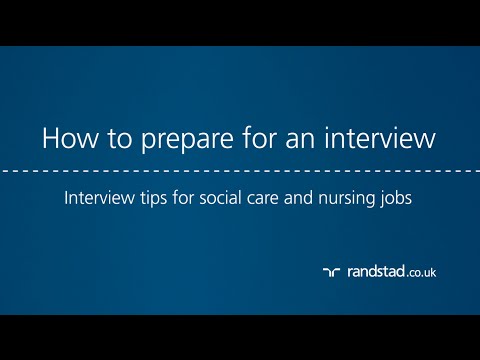If you have been working in social care for quite some time, then you are probably ready to make the next step in your career by becoming a social care team leader. This promotion will allow you to have:
- more diversity in your work
- important opportunities within your organisations
- the ability to assign staff to particular cases or help manage their own
- a higher salary!
So, what should you know before you step up to your upcoming interviews in terms of the questions to expect? Here we will review the five main categories that often come up and the skills you will be required to showcase: integrity, personal strength, creativity, responsiveness, and personal commitment.
Interview tips for team leader roles in social care.
The general interview process.
Candidates will first have to spend some time reviewing their previous accomplishments in care in order to assess their suitability for the role. They will also be required to give an overview of themselves and what brought them to care in the first place. Unfortunately, “needing a job” does not tend to make the cut as a response and you will need to think of why you were interested in working in care to start with. It is also not unusual for candidates to have to give a response to what interested them in the particular agency or organisation they are applying to or looking get promoted in, and to consolidate what they have learned in the preparation for the interview.
The skills you need to succeed.
Integrity.
Team leaders will need wholeness and accountability in order to thrive in the more management-like position they are applying for. In demonstrating this, they will be revealing their personal qualities, which have made them excellent care workers to begin with. An example question in this category would require candidates to discuss times they have had concerns with a client or a particular situation within the organisation and spoke up for or against them. This is a good opportunity to provide some reflection on what they have learned as workers and how it has improved them overall.
If you're heading to an interview any time soon, our care recruitment experts have outlined their top preparation tips for you to bear in mind in the clip below:
Personal strength.
Having the courage to respond to situations without assistance and through your own personal guidance is another key to thriving in a team leadership role. When candidates have the personal strength to respond to critical situations with ease, they will not only be proving their effectiveness within the role, the interviewing care organisation is likely to improve its own services by promoting the candidate into a position of greater importance. With this in mind, candidates will often have to tell the interviewer of a time they have had an urgent care need on their hands (medical emergency, public loss, or an assignment with a mental health issue), how they dealt with that particular situation, and what they learned as a result of it.
Creativity.
Being a creative worker can also go a long way in improving services for a care agency and make candidates a worthwhile option for promotion. Being creative in a protocol-based job is not the easiest, but perhaps candidates have had a time when they have had to open a dialogue with a client in order to improve the service he or she was receiving. This could even have included comments from immediate family members. Telling this story and the resulting lessons from it is a sure fire way to demonstrate creative and critical thinking skills.
Responsiveness.
Compassion is obviously at the core of care work and will be required for new candidates as well as team leaders. This will obviously lead into questions regarding previous experiences where candidates have had to be particularly attentive to the needs of a client; perhaps even discussing their first assignment against current assignments and how their levels of compassion have improved. It is important to demonstrate continuous professional improvement when answering these questions, as it is this sort of improvement candidates will need to have made before stepping up to a team leadership role.
Personal commitment.
The interview will often conclude itself with the more standard “going the extra mile” questions. These will often be used to help bring the whole interview to a close and give candidates opportunities to redeem themselves with more extended answers if they have struggled elsewhere. This is particularly important since interviewers can and will expect more long-winded replies to these questions. As with other fields, these questions will help candidates demonstrate both personal qualities and professional excellence. It is not unusual for management-like questions to show up either: perhaps times in the past when they have had to lead a team. Not responding to these questions will not necessarily mean the end, but candidates will fare better by answering them.
Viewing these more general interview questions may also be of help.




